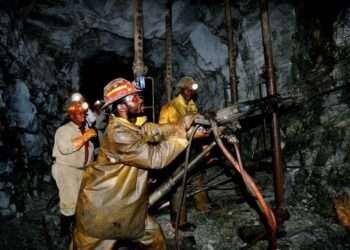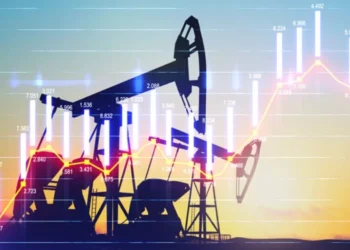Executive Director of the Institute for Energy Security (IES), Nana Amoasi VII, has stated that the quantum of power turned out by the power producers is not enough to meet public demand. He indicated that Ghana’s power sector is producing less than the country requires daily.
He specified that the inability to produce the quantum of power needed is due to a lack of natural gas supply. He disclosed that the supply of gas from Nigeria has been inconsistent, since the beginning of the year, because the power sector owes Nigeria in arrears.
“It is the case because we have financial challenges in the sector. That is why at one point in time you will all have to endure what we are going through because either the producers are demanding money, fuel suppliers are demanding money, or the transporter of the natural gas like WAPCO can demand the government to fulfill its commitment”.
Nana Amoasi VII
Nana Amoasi VII also stated that the President sometimes makes statements that are far from reality because he is being misled by the managers of the power sector and other stakeholders of the energy sector. He indicated that the President would not have assured Ghanaians of a regular power supply otherwise.
Dr. Yussif Sulemana, an Energy Strategist, stated that the problems of the power sector persist because the government continues to use the same strategy to solve power outage issues. He advised that the power sector must think of other effective solutions to power supply challenges.
Dr. Sulemana stated that Ghana is always in a vulnerable position concerning the dependable capacity of power generation. He specified that Ghana has a dependable capacity of about 3500Mw and the public peak demand is sometimes close to the dependable capacity.
The Energy Strategist maintained that because the dependable capacity and the peak demand are so close, it only takes a slight glitch for an erratic power disruption to occur. He emphasized that the irregular power supply will continue to resurface if more capacity is not added to power generation.
He indicated that creating a dichotomy in the energy and power sectors is a bad practice. He maintained that for an oil-producing country like Ghana, the power and energy sectors should not be segregated entities as the power sector thrives on the petroleum sector.
Implications For The Future
Furthermore, Dr. Sulemana stated that the government failed to take advantage of the Foundation Gas project, through which Tullow Oil Company supplied Ghana with over 200 cubic feet of gas cost-free, to increase the capacity of power generation.
He cautioned the government against politicizing the challenges of the power sector. He advised that the government must rethink a strategy to resolve issues with distribution as it is the component affected most.
“Our weak link has always been the distribution component of it because that’s where the cash flow comes. If you don’t maintain appreciable cash flow, within the distribution arm of the value chain, then the transmission and the generation, we are always going to have ourselves to blame”.
Dr. Yussif Sulemana
Dr. Sulemana also indicated that the problems are solvable if the government takes it head-on. He argued that power is essential to the country’s economic survival and therefore the current challenges must not be taken lightly.
The IES boss, Nana Amoasi VII, also specified that due to the current financial constraint in the energy sector, the irregular power supply may persist into next year, 2025. He advised that the sector must manage revenue properly to ensure that there is a cost-reflective tariff, otherwise there will be regular debt increase which will worsen the sector’s financial challenge.
“We shouldn’t be where we are because we had enough install capacity at close 2019, then of course at close 2016, we had extra; generating almost $ 650 million a year. So by 2023, efforts have generated for you a frequent flow of more than $ 3.5 billion. It could have paid the legacy debt at the close of 2016 but today we still have debt in the system and it’s still increasing”.
Nana Amoasi VII
Nana Amoasi VII indicated that by the middle of next year, power dependable capacity and install capacity will be worse. He emphasized that the government to inherit this power deficit, after the 2024 elections, will have a difficult time fixing it.
Conclusively with the current energy and power crisis, it is pragmatic for the government to invest in other sources of power supply like renewable power supply. The government must collaborate with the private sector to operate the renewable power supply in preparation for the year long power outages the country is predicted to suffer.
READ ALSO: Persisting Energy Crisis in Ghana: ‘Dumsor’ Woes Deepen As Financial Struggles Hit Sector





















